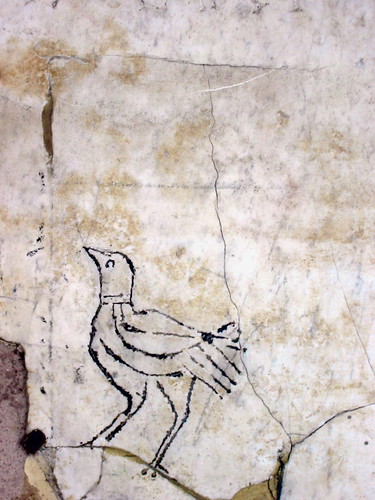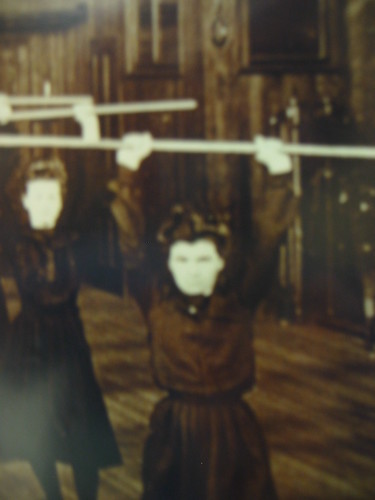
A Barrel
The Guardian published
Susan Sontag journal snippets the other day, making me think that a book’s coming. (I stumbled, too, over notice of an upcoming Norton
collection of letters exchanged between Guy Davenport and James Laughlin, edited by W. C. Bamberger, proprietor of Bamberger Books, the outfit that re-published Davenport’s long poem,
Flowers & Leaves. Bamberger lives, I learned, in Whitmore Lake, just up the road. Anyhow, Sontag, talking about the terrains of painting and writing (1966), with a sense of magnificent possibility (one never overhears such things now, only, “everything’s a rehash”):
The situation in painting is tight: like science. Everyone conscious of “problem,” what needs to be worked on. Each artist by his recent work issuing “white papers” on this or that problem, + the critics judging whether their chosen problems are interesting or trivial . . . While in literature, everything is so loose textured. One could make a parachute jump blindfolded—anywhere you land, if you push it hard enough, you’re bound to find interesting unexplored valuable terrain. All the options are lying bout, barely used.
Sontag’s sense of her own “genius” (like Stein, recall the ring-a-ding of a little bell when she encountered herself the first time . . .) And how she—Sontag—sees in Sartre the same seeing of genius in oneself (surely, an odd category):
Sartre (cf. “Les Mots”) the only other person I know of who had this “certainty” of genius. Living already a posthumous life, even as a child. (The childhood of a famous man.) A kind of suicide—with the “work” of genius you know you’ll do when adult your tombstone. The most glorious tombstone possible.
Or, in Sartre’s case, a tombstone made of Dexedrine tablets . . . Somehow that “posthumous life” reminds me of that thing Javier Marías talked about: the unspoken rapture of some individuals in one’s own life story, its perfect (unblemished) trajectory.
—
No getting around it:
Ron Silliman’s what Ezra Pound’d call a “bean-counter.” I find it both depressing and indicative of the particular brand of criticism—what he apparently thinks of as “sociological”—he practices, that
Silliman’s first response to Steve Evans’s
Attention Span listings—listings overwhelmingly annotated—should descend to more sloppy numerological calculations as a form of commentary. A dumbshow algebra of proof ranging from the painfully obvious—“what I see in these annual exercises is a sense of just how rich our contemporary poetry scene is”—to the mistaken: there’s no “list of invited contributors”—there is an open invitation, posted at Third Factory. As a data-set for statistical analysis, Evans’s forty-six respondents are meaningless. That’s less than one-half of one per cent. of Silliman’s posited “10,000 publishing poets.” It’s ironic that Silliman chooses the statistical approach in a year when Evans pointedly delayed posting the totals and tabulations, preferring the harder work of making available the notes (defenses) on the books selected. Where’s Silliman’s list? It’s always easier to count and haruspicate than it is to make finely considered distinctions, and attend to small arguments for what’s worthy.
Questions: Why so sneeringly single out Graywolf and Copper Canyon as “larger independents closely associated with the trades” and not include Coffee House? (I suspect the answer lies in the sense that Coffee House’s printing of
nth generation New York School makes it “less trade.”) Why point to
Wesleyan University Press as a place where “younger post-avant poets would generally be more likely to reach receptive readers” when Wesleyan’s list is (both recently and historically) rather incoherent, a veritable hodge-podge of tendencies intermixt’d with one-shot wonders. I suspect a more worthwhile sociological study of post-war U. S. poetry would consider the shifting committees of readers for Wesleyan—the poetry series began in 1959, and how, when consensus fails, one ends up with a dynamics whereby Mark Rudman is published alongside Rae Armantrout. Or Rachel Zucker alongside Barbara Guest. Historically, too, one notes anomalies, odd couples, helter-skelterisms: James Tate, Robert Morgan, Vassar Miller, Hyam Plutzik, Gregory Orr. One wonders most—considering Silliman’s blithe call to “younger post-avant poets” to “reach receptive readers by going with certain university or small presses” (referring, most obviously, to Wesleyan and California)—at the
recent “indefinite” shutdown by Wesleyan of any consideration of manuscripts other than invited ones. I, for one, imagine myself witness to a consolidation of institutional gains by whatever group of readers ’s currently got hold of the ear of Suzanna Tamminen, the editor in chief.
Regarding the “younger post-avant”’s reaching readers through the university / small presses (the trades being “closed”—and therefore, according to Silliman, mostly dispensable), the issue is less trade animosity toward the “post-avant” (whatever that is), than it is the standard repeated trajectory of the post-war U.S. poet’s publishing history. See
Charles Wright. First book,
The Dream Animal, published by House of Anansi Press in Toronto in 1968. Wright’s a late-bloomer, aged thirty-three. Two years later, first Wesleyan book,
The Grave of the Right Hand. There follow three Wesleyan books,
Hard Freight (1973),
Bloodlines (1975), and
China Trace (1977), before Wright’s first trade book (eleven years after the first Wesleyan),
The Southern Cross. Wright is forty-six that year. The succeeding years amount to a consolidation with a particular trade, FSG, who does
Zone Journals in 1988, following the Vintage / Random House
The Other Side of the River of 1984. In 1988, Charles Wright is fifty-three, and, one imagines, contractually obligated to FSG for first refusal (at least) on all subsequent collections. (Not always a sure thing. Just as university / small presses get used by the trades as hoops and bankability sorting stations for those on the way “up,” they also cushion the fall of those who fail to cut the mustard and are heading “down”—too well I recall getting a F. D. Reeve query at Ithaca House in the early eighties, apparently hatchet’d by Farrar, Straus and Giroux after the (relative) failure of
The Blue Cat (1972). Is that it? Or was it F. T. Prince, the Ashbery-huzzah’d Prince. (No, he’s British, and I tend to confusion.)
The upshot of it all (I love upshots): quit the whinge-ing and whining and write as if your socks depended off it.
—
Theo Scratcher writes: “I am seeing again. (‘All art is
about seeing.’) Walking the Commons yesterday—
par example—I noted ants working the sweet interstices of a rotting yellow pear, rind browning. And a boy, faux-hawk’d hair like a tall green wave forever cresting, peddling madly at a too-big bicycle, grinning deliriously. And then all my impulse, my desire, my mania goes toward the writing of my words
on other words. A kind of graphigraphy, a clutter and a smudge. Pelting the shaggy nap of a printed page with its own: more and more words in an ungracious honest mess.”


James Laughlin and Guy Davenport













































